Music for the Small Screen
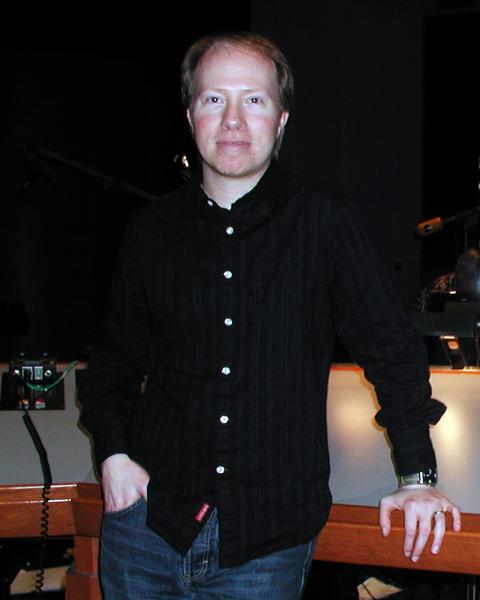
CSI: NY composer Bill Brown
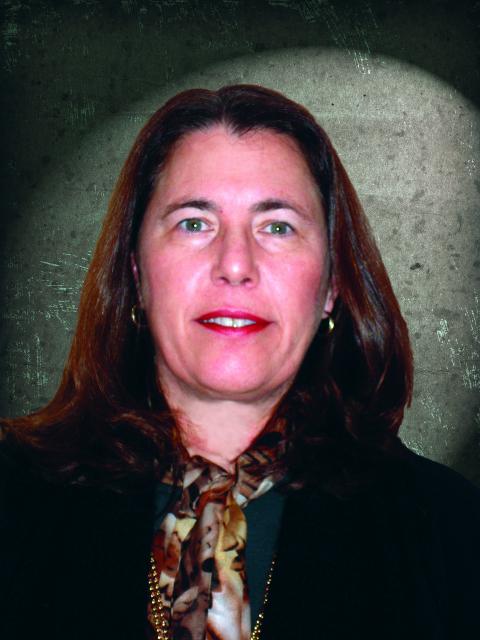
Music supervisor Wendy Levy
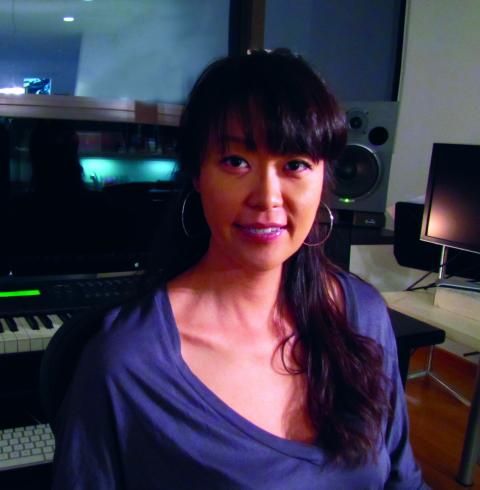
Reality TV show composer Hanna Lim
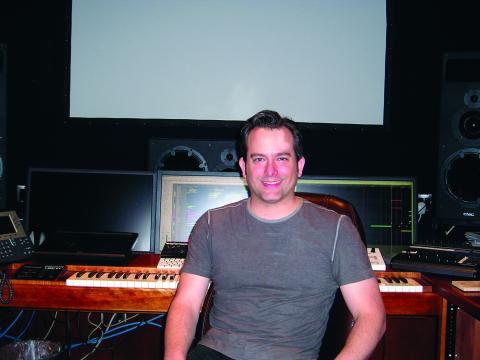
Mini series and film composer Geoff Zanelli
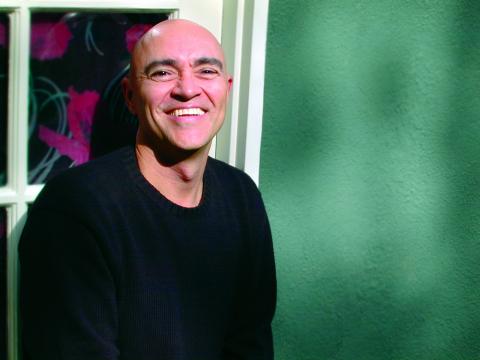
Composer and producer Daniel Indart
It’s true that there is less work for musicians in television these days than there was in past decades, but there are opportunities for those ready to roll with the changes. The alumni featured in the stories below reveal that luck, talent, a strong work ethic, and awareness of your musical and personal strengths continue to open doors to satisfying and creative musical careers.
A Perfect Scene
Bill Brown ’91 has the perfect background in music and technology to be the composer for the hit drama series CSI: NY. “I’ve been playing piano since I was four and writing songs since I was six,” he says. From middle school through high school, “I was recording songs on a TEAC four-track recorder and learning to program synthesizers in my bedroom. By the time I was in my senior year of high school, I had some pretty cool synths, and at Berklee I took that even further.” Although he was a film scoring major, Brown also delved into MP&E and songwriting courses. During those years, Brown was also introduced to jazz and 20th-century classical music as well as an array of film music. These and other influences inform his current work. “It was revelation after revelation for me during that time,” he says.
After graduating from Berklee, Brown took an internship in New York working on commercials before packing up and heading to Los Angeles. “I took a trip out to L.A. to hang out with a good friend from Berklee who was working at Digital Sound and Picture at the time,” Brown recalls. “He was nice enough to get me a job interview while I was there.” Brown didn’t intend to become a sound-effects editor for life, but the job offer enabled him to relocate and start building relationships in the industry.
Later, during the 1990s, Brown was working at Soundelux DMG in Hollywood scoring video games such as Rainbow Six, Ghost Recon, and Undying, to name a few. He wrote some music on spec for a commercial directed by Deran Sarafian, who later hired Brown to score the TV movie titled Trapped. “That was a great experience,” Brown says. “I learned a lot from Deran and he enjoyed the music so much he called me back a few years later when he was directing the pilot for a new TV show called CSI: NY.”
Since helping to develop the musical tone in the show’s pilot in 2004, Brown has continued as the composer for the show. His role is to add dimension and emotional depth through cues that blend rhythmic and ambient elements with orchestral sounds that he produces in his Los Angeles studio. For some cues, he also brings in guitar and woodwind players to create different textures. Brown writes between 15 and 20 cues each week, and after seven seasons, he’s gotten the rhythm of the schedule.
“I’m on it every day of the week,” he says. “I get one day to spot the episode with the postproduction team and then four or five days, from start to finish, to deliver the score for each episode.”
Brown cites consistent effort and preparation as a key reason for his success. “I think that preparedness is one of the keys to the success and quality of my music,” he says. “I’m constantly learning and working, even when there isn’t something to specifically write for. I work on new ideas, look for new sounds, and organize my studio and libraries. When I’m starting a project or an episode, I’ll even take the work into my dreams and then wake up and get the ideas into the computer. Constant communication with my team is also important.”
Having composed for video games, feature films, and a hit TV series, Brown has already accomplished a lot in his career. And he is enthusiastic about what lies ahead. “I’m just getting started; there’s so much left to do,” he says. “I feel very blessed to be where I am today and do not take it for granted—ever. Every day is an opportunity to create something great, and that’s a gift. I’m hoping to work on more films in the future, that can be really gratifying work. I’m excited about whatever is around the corner.”
TV As the New Radio
For a dozen years, Wendy Levy ’87 has been an independent music supervisor for network television. Her job involves offering producers the right songs for their shows. She is also tasked with negotiating usage fees with the artist’s label and publisher, then obtaining signed contracts—or “papering” the deal, as she puts it. Levy says the papering end of her business is much like paralegal work, but helping to create the sound of a show and placing the music of lesser-known artists can be quite satisfying.
“Currently, I consult for various clients, including the CW Network on their new pilots, developing shows, and some ongoing shows,” Levy says. “I help a lot with reality shows and supervised for the series Life Unexpected and Plain Jane, and consulted on 90210 and Melrose Place.” (A more extensive list of Levy’s credits can be found on the Internet Movie Database at www.imdb.com.)
Levy grew up in Philadelphia, Pennsylvania, and began her career as a songwriter in Los Angeles after completing her Berklee studies as a professional music major. She placed some songs in films and wrote a few advertising jingles, but then left music altogether to start a company devoted to Web and application development for nonprofit organizations. “There was no music involved, but it was good for me in that I learned a lot about consensus building and managing projects with input from many departments,” she says. “That has benefited me tremendously in the work I do now. A lot of what I do is building consensus.”
In 1999, Levy was lured back to music when contacts who were familiar with her previous music-writing work asked for help on a TV show. “They needed me to fix some television pilots by putting in temp scores,” Levy recalls. “I had music-editing skills, and this seemed very easy to me, because I didn’t have to write anything.” After that project and some additional consulting, Levy made the leap into music supervision. “This is a career that found me. I was not looking to become a music supervisor,” she says with a smile.
The floor of the studio at her Los Angeles home is covered with stacks of CDs, and a lot more digital-based music arrives daily from major and independent labels. Some indie artists submit material to her directly. “You need to be able to process a lot of music and be a walking database in this field,” she says. “For a TV pilot that hasn’t developed a sound yet, the producers may just tell you that they want the newest, hottest sound. That’s pretty broad. I need to be able to go deep and know what has been hot for the past 10 years. But I also have to know what music was hot in the sixties, seventies, eighties, and nineties.”
As a supervisor Levy needs to stay calm as she works against tight deadlines and hammers out all the financial and legal details associated with each licensed song. It’s also critical to have endless ideas about what songs could work in a scene. “You have to come up to speed quickly on the culture of a show: who the decision makers are, what their processes are,” Levy says. “I enjoy being a detective: figuring out what belongs in the world of a show or film and what doesn’t.”
The compensation for placing a song in an episode depends on the required media rights, terms, and territories and can range from a few hundred dollars to $40,000 for a track by a major artist. Labels and artists alike are mindful of this additional revenue stream as well as the benefits of having songs appear in TV productions. “Over the past two years, we’ve been seeing evidence of the promotional value of a song appearing in a show—especially if it’s the last song,” Levy says. “Labels always tell me about the bump a song gets from a placement. We used to talk about TV being the ‘new radio,’ but it really has become that now.”
Reality Cues
Born in Korea, Hanna Lim relocated to Oklahoma during her high-school years. Despite winning piano competitions during her childhood and having an interest in writing music, she pursued an undergraduate degree in Chinese and economics, then an MBA in business. And before enrolling at Berklee, she had also worked in Silicon Valley.
“I always had a passion for music but didn’t fully realize it until I was older,” Lim says. “I wanted to be a singer/songwriter at Berklee but was blown away by film music when I got there. I was a double major in film scoring and contemporary writing and production so that I could learn to write many different styles of music.”
After completing her Berklee studies in 2007, Lim moved to Los Angeles and immediately found work assisting composer Deborah Lurie on her musical Bare. “I was transcribing music, doing basic arranging, and music preparation,” Lim says. “A few months later, I started working for other composers, including Claude Foisy—who does a lot of sci-fi movies—and Lee Sanders, the main composer for The Amazing Race.”
Still a newcomer, Lim discovered that composing cues for sci-fi and horror movies provided a valuable entrée to the business even if it wasn’t the style of writing she had anticipated doing. “Horror movies require a very different style of music than The Amazing Race, which is high action and fun, fun, fun. But I’m glad I got to do horror films.”
Sanders invited Lim to start writing cues for The Amazing Race on a weekly basis. Since 2009, she has composed additional music for the show. A unique aspect of “Race,” as she refers to it, is that the show’s contestants travel to so many different countries throughout the season. That frequently requires cues with an ethnic flavor. Lim was the perfect choice to write a recent cue for a scene about river rafting in Korea. “I ended up using some traditional Korean instrument sounds for that one,” she says. “Another episode was shot in Dubai at an indoor ski resort.” For that one, she used a Middle-Eastern scale and ethnic-sounding instrument samples blended with traditional Western Christmas sounds. “I called that cue ‘Christmas in Dubai,” she says with a laugh. “I do a lot of research on the music on YouTube, iTunes, and Wikipedia. These kinds of cues were really challenging at first, but now they are just really fun.”
Another unusual aspect of writing for the show is that only Sanders gets to view the footage before the composing begins. He then gives Lim a verbal description of the cues he needs.
“At first, I didn’t know how to write without seeing the picture,” Lim says. “But after I saw how my music was being used in the scenes, I understood what I could do to make the editing easier. Usually, I’m not given the length of a cue, but they typically run about a minute and a half. I’ve never seen a reality show with a five-minute cue, but you don’t want to give them something that is too short.”
Based on the premise of a race around the world, the show opens in a different country each week and the music needs to contain cultural elements. There’s constant action, with the contestants doing physically challenging activities: jumping off a bridge, rafting, or sledding in unusual locales. “It’s very dynamic,” Lim says, “so the music has to be moving at all times. A typical cue will have lots of notes, hits, breaks, and modulations. I’ve written intense cues with full [electronic] orchestra, heavy percussion, and loops. For comedic cues, I might use more woodwinds. When a team gets eliminated, a softer cue is needed.”
Lim says that there are a lot of opportunities to write for reality TV. “As a composer starting out, you need to learn to write the music that’s needed and develop your own voice and sound to get noticed. Writing for Race has been superfun for me. I’ve learned a lot.”
Knowing Your Strengths
Geoff Zanelli ’96 sits in his studio at Media Ventures in Santa Monica, CA, surrounded by dozens of guitars, audio gear, and computers. For a decade and a half, he has developed his career as a film composer and has scored such titles as Disturbia, Ghost Town, and Secret Window, to name a few. Yet it was the six-part TV mini-series Into the West that won him his first major award: a Primetime Emmy. For a second mini-series, The Pacific (with Steven Spielberg as the executive producer), Zanelli, Hans Zimmer, and Blake Neely composed music for the 10-episode series and received an Emmy nomination for their work.
“Both projects were very different,” Zanelli says. [In the case of Into the West], as I was working on episode one, episode two wasn’t ready yet. There were six 90-minute episodes so it was like scoring a movie with five sequels. The Pacific was different. It felt like a big film and took nine months with three composers. All 10 hours were shot and edited in a rough state before we started. In that case, I could see a story arc and follow that through various episodes. So it was more like scoring a 10-hour movie than something with sequels.
At Berklee, Zanelli was a guitarist who double-majored in film scoring and music production and engineering. That combination got him an internship at Hans Zimmer’s Media Ventures studio complex.
“After my second year at Berklee, I looked up every studio in L.A. that did music for film and sent résumés to 60 of them offering to work for free,” he says. “I got just one response and started working during summer and winter breaks for Hans at Media Ventures. It was great to be around people who worked so hard. I would be bringing coffee in, and Hans would be discussing film music with Jeffrey Katzenberg. Hearing what Hans would say when he played a song for someone for the first time was amazing for me to witness.”
After graduation, Zanelli became an assistant engineer at Media Ventures, and soon composer John Powell hired him as his engineer. “It wasn’t a musical job, I was loading samplers and making sure everything came up to the right faders. But after about a year, John asked me to do little musical things, like program some percussion for a cue. It built from there. I worked for him until about 1999, and by the end of that time I was writing cues for him.”
Zanelli was soon composing for his own projects as well. When budget permits, he ideally likes to use live musicians. Live ensembles are used in only a handful of TV series these days, but a mini-series is different, often calling for a grand score and offering a budget large enough to pay extra musicians.
“Into the West is an epic,” Zanelli says. “I was offered a package that seemed huge to me, but I spent nearly the entire budget because we had six hours of music to record, and I wanted to use live musicians. L.A. players are so expensive that we used Eastern European musicians. For The Pacific, they gave us enough of a budget to use L.A. musicians, and it sounded great.”
While his heart is in film music, Zanelli is open to almost anything, although he says he’s not ready for a sitcom at the moment. “It’s important to know your strengths,” he says. “I’d like to do a TV series—depending on the show. I like the idea of big character arcs that develop over a season. I work best on shows that are thematic.”
Zanelli is currently completing the music for Rango, his first animated feature, and will assist Zimmer on the next episode in the Pirates of the Caribbean franchise. The work is demanding, but Zanelli is used to the all-nighters. “It’s hard work,” he concedes. “But it is worth it when you feel you are helping to make the story better. You don’t think about the fact that it’s 4:00 in the morning.”
Looking Back for Authenticity
Daniel Indart firmly believes that for a musician to find his voice, the key is to look deeply into his background rather than just to artists he admires. After spending his childhood living in several South American countries, Indart now operates several successful publishing companies and music libraries all of which specialize in Latin music: the sounds of his background. Indart’s main ventures, Latin Music Specialists and his LMS Records label, are considered top sources for Latin music for TV and film productions for clients throughout the United States, Europe, and Japan.
When he was a film scoring major and songwriter at Berklee, Indart didn’t think much about the Latin pop and folkloric musical styles he’d absorbed as a child. But now they are the foundation of his robust career. “Growing up I was very focused on American music,” Indart says. “I idolized Earth, Wind & Fire and was into writing that style of music when I was at Berklee. But when I got to L.A., it hit me that I could never do that and compete with people born and raised in the American culture. I could copy, but my music would not be the real thing.”
After graduating from Berklee, Indart arrived in Los Angeles in 1984 and took various music-related jobs to pay the rent. In 1985 the demo of song he’d written and produced for hire for a lyricist reached the ears of an executive at a major an ad agency that was looking for Latin music. “I got a call from the creative director for a Coors beer commercial [that] needed a song in the Mexican estudiantina style,” Indart recalls. “I researched the style and got some friends to help me make a demo. The company loved the song and asked me to do all the Coors national commercials for the next year.” That launched a lucrative career in jingle writing that spanned 20 years.
Indart recalls a different opportunity that sprang to his mind during the late nineties as he watched a movie by a major American producer. “There was an opening shot of a city at night, and the text underneath it said ‘Guatemala City,’” he says. “The camera closed in on a woman doing flamenco steps to music played by a [Mexican] mariachi band. The music didn’t match at all for Guatemala. That made me think the industry could use an adviser for Latin-American musical styles.”
Indart took material from his unused jingle demos and created the Hot Latin Tracks Library, the first of its type on the market. Then he advertised his consulting service in the Hollywood Reporter. The first call he got was to work on the film Dance with Me. He has since become known as the entertainment industry’s foremost expert on all genres of Latin music. Indart has supplied music for TV series such as The Sopranos, Chuck, Lie to Me, several CSI franchises, and many others, as well as for movies such as Gran Torino, The Sentinel, Dirty Dancing, and more.
Music supervisors call on Indart for music in virtually any Latin style and rhythm including mambo, salsa, mariachi, norteño, bambuco, tango, merengue, Spanish flamenco, and more. “We also have a lot of crossover stuff too, including Latin electronica, Reggaeton, and Latin pop,” he says.
When a scene demands it, he can advise clients on what is on the radio in Santiago, Chile, and the United States. “The U.S. market for Latin music is very diverse,” he says. “What’s played on the radio in Miami is much different from what’s played in L.A., Chicago, New York, or Texas. It’s even different from neighborhood to neighborhood in bigger cities like Los Angeles.”
Indart says that once he identified his field of expertise, his entire career opened up. “Whenever someone tells me they are trying to find their own voice, I say look to your background for originality and for your path,” he says. “The music you heard as a kid and what your parents listened to is in your blood. That’s where you should look first.”




